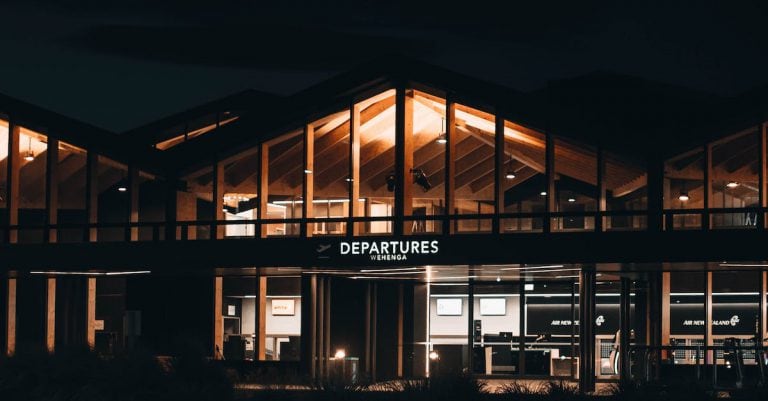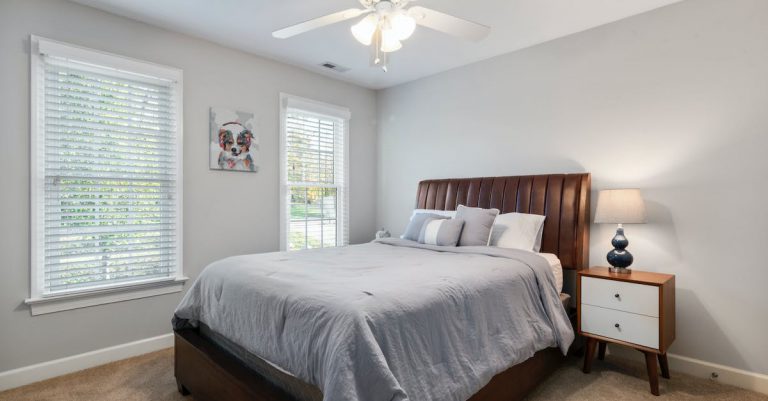Connecting to public Wi-Fi on hotel and cafe networks poses risks like hacking, spoofing, and man-in-the-middle attacks.
A trusted Virtual Private Network (VPN) provides essential encryption to keep your data safe. But several other steps should also be taken for full public Wi-Fi security.
How VPNs Encrypt Hotel Wi-Fi Connections
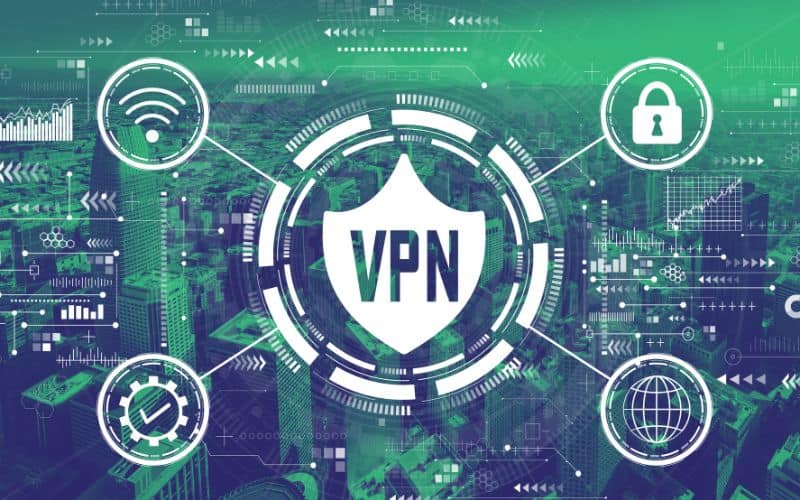
When using hotel Wi-Fi, it’s important to take precautions to protect your sensitive data and ensure your online privacy. One effective way to achieve this is by using a Virtual Private Network (VPN).
By encrypting your internet connection, VPNs provide an added layer of security, making it safer to use hotel Wi-Fi networks.
Encrypted Tunnels Shield Traffic
A VPN creates a secure, encrypted tunnel between your device and the VPN server, preventing anyone on the same network from intercepting your data. This means that even if someone manages to access the hotel Wi-Fi network, they won’t be able to see your browsing activity, passwords, or any other sensitive information you transmit.
The encryption used by VPNs is typically military-grade, based on complex algorithms that are virtually impossible to crack. This ensures your data remains private and secure, no matter where you connect.
Also Read:
Can Hotel Wi-Fi See Private Browsing?
Can Hotel Wi-Fi See Incognito History?
Mask IP Address and Location
Your IP address and physical location are exposed when you connect to a hotel Wi-Fi network without a VPN. Hackers or other malicious individuals can use this information to track your online activities or target you with unwanted advertisements.
With a VPN, your IP address is masked, and your location appears to be that of the VPN server you are connected to. This protects your privacy and allows you to access geo-restricted content or bypass censorship measures that may be in place.
Prevent Throttling and Data Tracking
Some hotels may intentionally limit the bandwidth available to guests on their Wi-Fi networks, a practice known as throttling. This can result in slower internet speeds and frustrating browsing experiences.
Using a VPN lets you bypass throttling and enjoy faster internet speeds. VPNs encrypt your traffic and prevent your ISP or the hotel from tracking your online activities, making it difficult for them to slow down certain types of traffic selectively.
In addition, VPNs often offer features such as ad-blocking and malware protection, further enhancing your online security while using hotel Wi-Fi.
It’s worth mentioning that while VPNs greatly enhance the security and privacy of your internet connection, it’s important to choose a reputable VPN provider. Look for providers with a strong track record, transparent privacy policies, and robust encryption protocols.
Also Read: How To Make Your Hotel Wi-Fi Faster
Additional Ways to Fortify Hotel Wi-Fi Security
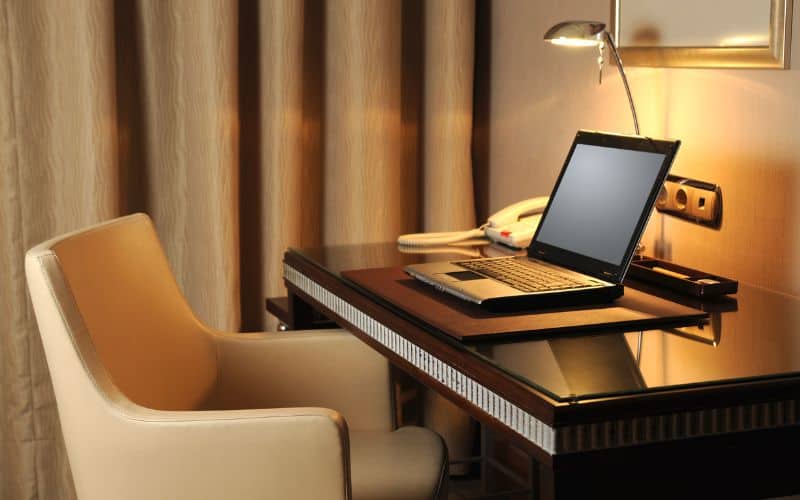
Use DNS over HTTPS
One effective way to enhance the security of your hotel Wi-Fi connection is by using DNS over HTTPS (DoH). DNS requests are sent in plain text by default, meaning anyone on the same network could intercept and view your browsing activity.
However, DoH encrypts your DNS requests, making it much harder for hackers to eavesdrop on your online activities. Many popular web browsers, such as Firefox and Chrome, now offer built-in support for DoH.
Turn Off File Sharing
When connecting to hotel Wi-Fi, it’s important to disable file sharing on your devices. File sharing can make your device vulnerable to unauthorized access, potentially allowing others on the network to view, modify, or even delete your files.
To protect your data, turning off file-sharing settings before connecting to hotel Wi-Fi is recommended. This simple step can prevent security breaches and protect your personal information.
Disable Auto-Connect Options
Many devices have the option to connect to known Wi-Fi networks automatically. While this feature can be convenient, it poses a security risk when using hotel Wi-Fi. Hackers can set up malicious networks with similar names to trick your device into connecting to them automatically.
To avoid falling victim to such attacks, it’s advisable to disable the auto-connect feature on your devices when connecting to hotel Wi-Fi. This way, you can manually select and verify the correct network before connecting.
Avoid Sensitive Logins and Transactions
While using hotel Wi-Fi, it’s best to avoid logging into sensitive accounts or conducting financial transactions. Public Wi-Fi networks, including those provided by hotels, are more susceptible to hacking attempts.
Cybercriminals can intercept your login credentials or financial information when transmitted over insecure connections. Saving these activities for a more secure network, such as your cellular data or a trusted personal hotspot, is recommended to protect sensitive data.
Remember, even with these additional security measures, it’s always a good idea to use a Virtual Private Network (VPN) when connecting to hotel Wi-Fi. A VPN encrypts your internet traffic, ensuring your data remains secure and protected from prying eyes.
Combining these extra precautions with a reliable VPN allows you to enjoy a safer and more secure browsing experience while using hotel Wi-Fi.
Watch for Social Engineering and Phishing Attempts
When using hotel Wi-Fi, it’s important to be cautious of social engineering and phishing attempts, as cybercriminals may try to exploit vulnerabilities in the network to gain access to your personal information.
Here are some tips to keep in mind:
Beware Suspicious Network Names
Before connecting to a hotel Wi-Fi network, always double-check the network name to ensure it matches the official name provided by the hotel. Cybercriminals may create fake networks with similar names to trick unsuspecting users into connecting to them.
These networks can intercept sensitive information like login credentials or credit card details.
Don’t Click Unverified Links
Be cautious of unsolicited emails or pop-up messages that prompt you to click a link or provide personal information. These could be phishing attempts designed to trick you into revealing sensitive data.
Always verify the message’s source before clicking on links or sharing personal information.
Check for HTTPS Encryption
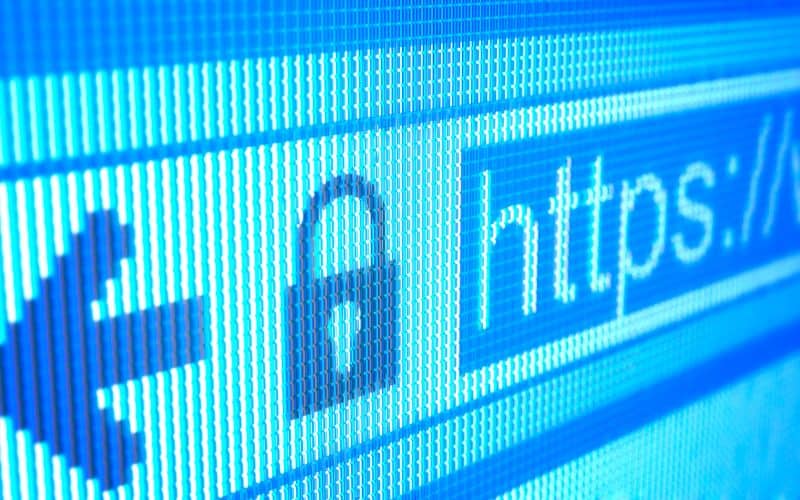
When browsing websites or entering sensitive information, ensure the website is encrypted using HTTPS. This ensures that the data transmitted between your device and the website is secure and cannot be intercepted by third parties.
Look for the lock icon in the browser’s address bar and the “https://” prefix in the website’s URL.
You can visit the FBI’s official website for more information on staying safe while using hotel Wi-Fi. They provide valuable insights and tips to protect yourself from potential cyber threats.
Choosing the Best VPNs for Public Wi-Fi Use
When it comes to using public Wi-Fi, security should be your top priority. One effective way to protect your sensitive information is by using a Virtual Private Network (VPN). However, not all VPNs are created equal, and choosing the right one for your needs is crucial.
Here are some factors to consider when selecting a VPN for public Wi-Fi use.
Top Services Like ExpressVPN and NordVPN
ExpressVPN and NordVPN are two of the most popular VPN services. They both offer robust security features and a wide range of server locations. With ExpressVPN, you can enjoy fast and reliable connections, while NordVPN provides excellent privacy protection.
These services have been trusted by millions of users worldwide and are known for their user-friendly interfaces and reliable customer support.
Consider Internet Speed Impacts
While using a VPN can enhance your online security, it can also affect your internet speed. Some VPNs may slow down your connection due to the encryption process. When selecting a VPN for public Wi-Fi use, it’s essential to consider its impact on internet speed.
Look for VPNs with high-speed connections and optimized servers for faster performance. This way, you can enjoy both security and a seamless browsing experience.
Enable ‘Kill Switch’ Setting
One crucial feature to look for when choosing a VPN for public Wi-Fi use is a “kill switch.” This feature automatically disconnects your device from the internet if the VPN connection drops. It prevents any data from being sent or received without the protection of the VPN.
Enabling the kill switch ensures your sensitive information remains secure, even with connectivity issues. Not all VPNs have this feature, so check if it’s available before deciding.
Conclusion
Using a VPN provides essential encryption for secure hotel Wi-Fi access. But travelers should also enable HTTPS, avoid risky logins, and watch for phishing to ensure full protection.





